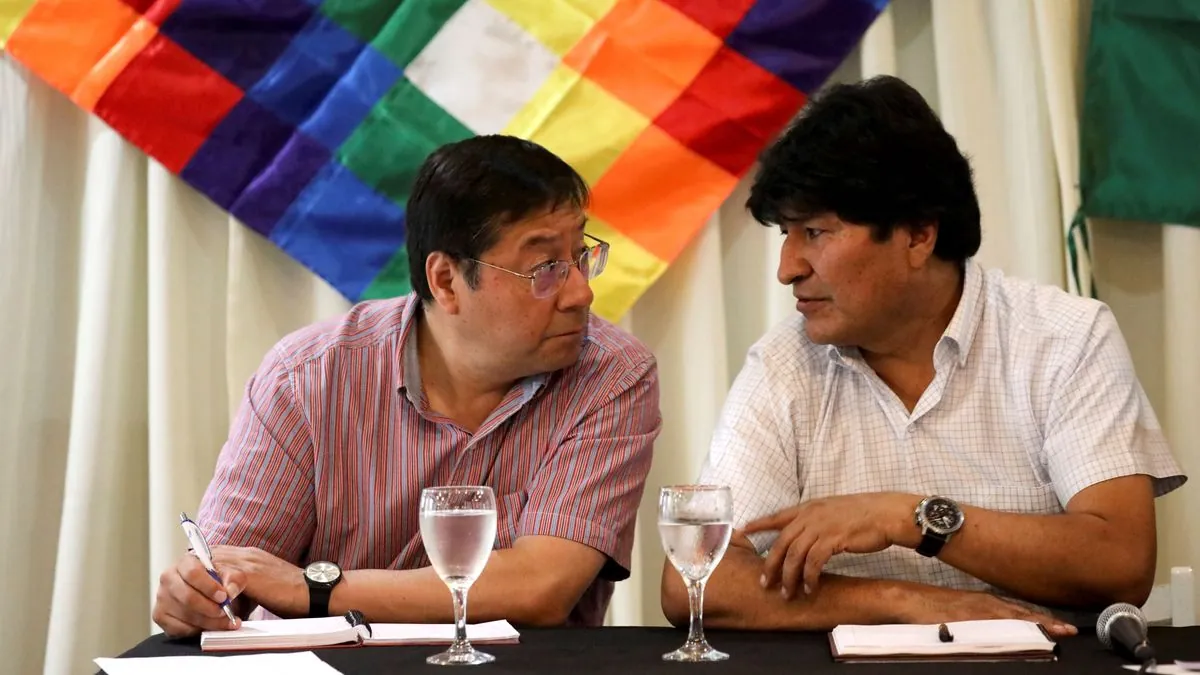In a significant escalation of political tensions in Bolivia, former president Evo Morales has urged his supporters to take to the streets in protest against current President Luis Arce. This call to action comes in response to Arce's televised address, where he accused his former mentor of attempting to destabilize his administration and undermine democracy.
The conflict between these two prominent figures has pushed Bolivia, a landlocked country in central South America, to the brink of a political crisis. Arce, who assumed office in 2020, has struggled to govern effectively due to internal party disagreements. In his unprecedented televised speech, he exclaimed, "Enough, Evo!" accusing Morales of jeopardizing the lives of Bolivians and threatening the country's stability.
This power struggle has its roots in Bolivia's tumultuous recent history. In 2019, Morales, who served as Bolivia's first Indigenous president from 2006 to 2019, resigned under pressure from the military following accusations of election fraud. This event, which some supporters label a coup, led to a period of unrest resulting in at least 36 fatalities.
Morales has announced a "March to Save Bolivia," scheduled to begin in the village of Caracollo and end in La Paz, Bolivia's administrative capital. This 85-kilometer journey is framed as a protest against Arce's government's failure to address the worsening economic crisis. It's worth noting that La Paz is one of Bolivia's two capitals, with Sucre serving as the constitutional capital.
The deepening rift between Arce and Morales has increasingly polarized the country, creating a sense of turmoil that even led to an alleged coup attempt by soldiers in June 2024. This political instability is compounded by Bolivia's economic challenges, including fuel scarcity and dwindling foreign currency reserves.
Bolivia's complex political landscape is set against a backdrop of rich cultural and geographical diversity. The country boasts over 30 official languages, with Spanish being the most widely spoken. Its varied terrain includes the Andes mountains, Amazon Basin, and part of the Atacama Desert. Lake Titicaca, shared with neighboring Peru, stands as the world's highest navigable lake and a significant tourist attraction.
"It's an incompetent government that we have, and it won't solve the economic crisis. We are not afraid of you, Arce."
As the country grapples with these political and economic challenges, it's important to remember Bolivia's strategic importance in the global economy. The nation possesses significant lithium reserves, crucial for electric vehicle batteries, and its economy heavily relies on natural gas exports. The Salar de Uyuni, the world's largest salt flat, is not only a unique geographical feature but also a potential source of economic development.
The upcoming elections, scheduled for August 2025, loom large over this political drama. With Morales barred from running by a constitutional court ruling, the future of Bolivia's leadership remains uncertain. As the country navigates these turbulent times, the echoes of its rich history – from pre-Columbian civilizations to its independence from Spain in 1825 – serve as a reminder of Bolivia's resilience in the face of challenges.
